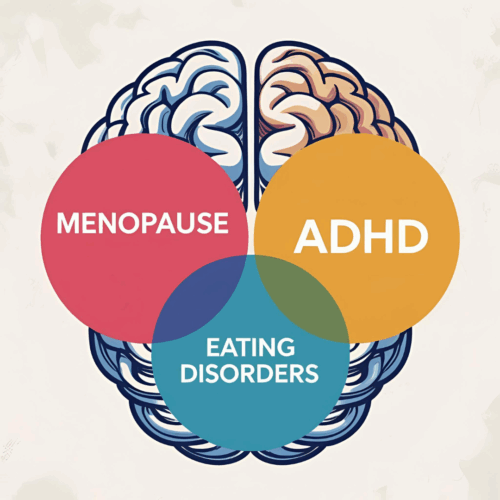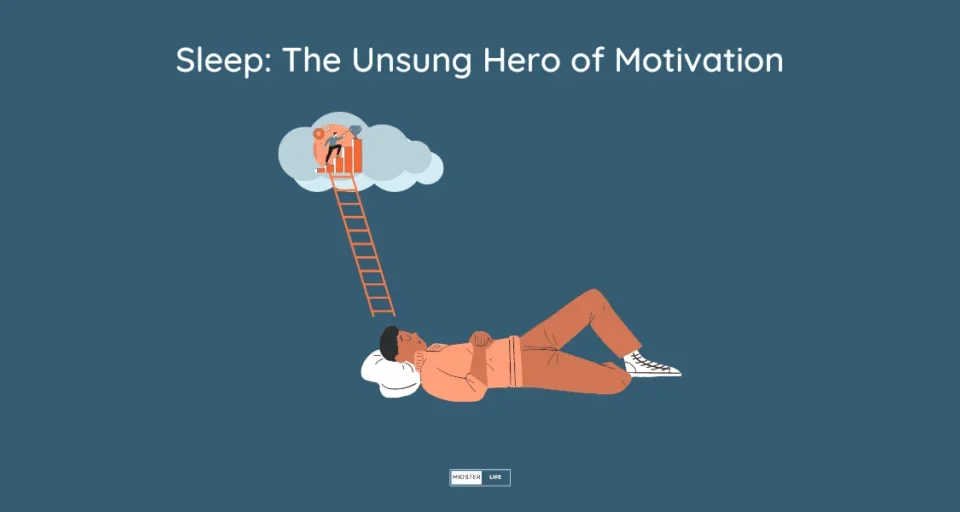A few weeks ago, I had the privilege of speaking on a women’s health panel for the Petaluma Area Chamber of Commerce. I was first asked to introduce my new business, Motivate with Mel, where I shared my specialty areas: Behavioral Nutrition for Eating Disorders, the Menopause Transition, and ADHD.
During the second round of questions, I was asked, “What do these three specialty areas have in common?” The answer is… a lot!
So, buckle your seatbelts for a bit of background before I reveal their commonalities. At first glance, these conditions may seem independent, but through my career, parenting experience, and witnessing the aging process, I’ve seen them overlap in ways that keep showing up—confirming just how deeply connected they are.
First of all, here’s what I know as truth: our society promotes disordered eating. There’s a difference, though often a correlation, between disordered eating and eating disorders. Disordered eating includes diet-culture-driven patterns that promise certain results, usually for outward appearance and to meet societal norms. An eating disorder, on the other hand, is a serious mental health condition with the highest mortality rate of any mental illness. Left untreated, it leads to malnutrition, cognitive deficits, lifelong health issues, diminished quality of life, and even premature death.
What inspired me to support all of these conditions is this:
- In the past decade, I’ve seen a significant increase in the overlap between ADHD and eating disorders. Many teens with ADHD develop eating disorders. In fact, people with ADHD are four times more likely to develop an eating disorder. Conversely, those diagnosed with an eating disorder often show co-existing symptoms of ADHD.
- I’ve also seen an increase in disordered eating behaviors during the menopause transition, as well as menopause triggering a relapse in eating disorders and/or ADHD-like symptoms.
Here’s the truth: women’s bodies change, negative body image thoughts show up, diet culture mentality kicks in, and we find ourselves fighting an uphill battle during what is supposed to be a beautiful transition into womanhood. While this is happening, it can feel like we’re losing our minds.
From another angle, I’ve seen mothers trying to manage the menopause transition while also supporting adolescent children navigating eating disorders and/or ADHD. This is incredibly difficult and can lead to poor self-concept, situational anxiety, and depression, all of which make it even harder to cope.
If you’ve made it this far, thank you! This is me, not Chat GPT…. I hope you’re interested enough to keep going, because the bottom line is this: there are common threads in each condition. Understanding these commonalities is a great way to start unwinding the stigma, shame, and judgment, and to surrender to the complexities of it all.
As Dr. Jen Gunter, OB/GYN and author of The Menopause Manifesto, says:
“We need to normalize conversations about women’s mental health at midlife. The intersection of ADHD, eating disorders, and menopause is real, and women deserve to be heard and supported.”
The Hormonal Connection
Hormones are powerful messengers in our bodies, influencing everything from mood to metabolism. During the menopause transition, estrogen and progesterone levels fluctuate wildly, affecting not just physical health but also mental well-being. These hormonal shifts can trigger or worsen symptoms of ADHD and eating disorders.
“Estrogen has a significant impact on neurotransmitters like dopamine and serotonin, which are involved in both ADHD and mood regulation. As estrogen levels drop during menopause, women may notice a worsening of ADHD symptoms and increased vulnerability to mood disorders and disordered eating,” says Dr. Louann Brizendine, neuropsychiatrist and author of The Female Brain.
Mental Health Connection
All three conditions—eating disorders, menopause transition, and ADHD—are closely tied to mental health. Anxiety, depression, and emotional ups and downs are common companions. Women with ADHD are statistically more likely to develop eating disorders, and both conditions can become more challenging during menopause due to increased stress and mood swings.
A 2020 study published in Menopause found that women with a history of eating disorders reported more severe menopausal symptoms and higher rates of depression and anxiety during the transition (Menopause, 2020).
Underdiagnosis Connection
Historically, ADHD and eating disorders have been underdiagnosed in women. Why? Because symptoms often look different than they do in men, and because society tends to attribute women’s struggles to ‘hormones’ or ‘stress.’ During menopause, it’s easy for both women and healthcare providers to chalk up cognitive changes or emotional difficulties to ‘just getting older,’ missing the underlying ADHD or eating disorder that needs attention.
“Women are often overlooked when it comes to ADHD diagnosis, especially in midlife. Their symptoms can be masked by hormonal changes or misattributed to menopause, leading to years of unnecessary struggle,” explains Dr. Ellen Littman, clinical psychologist and ADHD specialist.
Impulsivity, Executive Function, and Eating Behaviors Connection
ADHD is known for impulsivity and challenges with executive function—skills like planning, organization, and self-control. These same challenges can play a big role in disordered eating, from binge eating to restrictive behaviors. Add in the cognitive changes that can come with menopause, and managing healthy eating habits can become even more difficult.
A 2022 review in Current Psychiatry Reports highlights that women with ADHD are at higher risk for developing eating disorders, particularly binge eating disorder, due to difficulties with impulse control and emotional regulation (Current Psychiatry Reports, 2022).
Why Integrated Care Matters
Because eating disorders, menopause transition, and ADHD can all influence each other, the best approach is integrated care. That means looking at the whole person—hormones, mental health, neurobiology, and lifestyle—not just treating symptoms in isolation. If you or someone you love is struggling with any (or all) of these issues, that is where I come in. With my clinical, behavioral and educational background, I can help you tease out the next steps based on the competing symptoms and challenges. I may not have all the answers, but I can help you navigate a plan with professional resources to support you getting the integrated care you need. Please let me know how I can help.
References
Brizendine, L. (2006). The Female Brain. Broadway Books.
Eating disorders and menopausal symptoms. Menopause, 2020. https://journals.lww.com/menopausejournal/Fulltext/2020/01000/Eating_disorders_and_menopausal_symptoms.13.aspx
ADHD and Eating Disorders in Women. Current Psychiatry Reports, 2022. https://link.springer.com/article/10.1007/s11920-022-01338-2
Gunter, J. (2021). The Menopause Manifesto. Kensington Books.
Littman, E. (2016). Understanding Girls with ADHD. Advantage Books.




